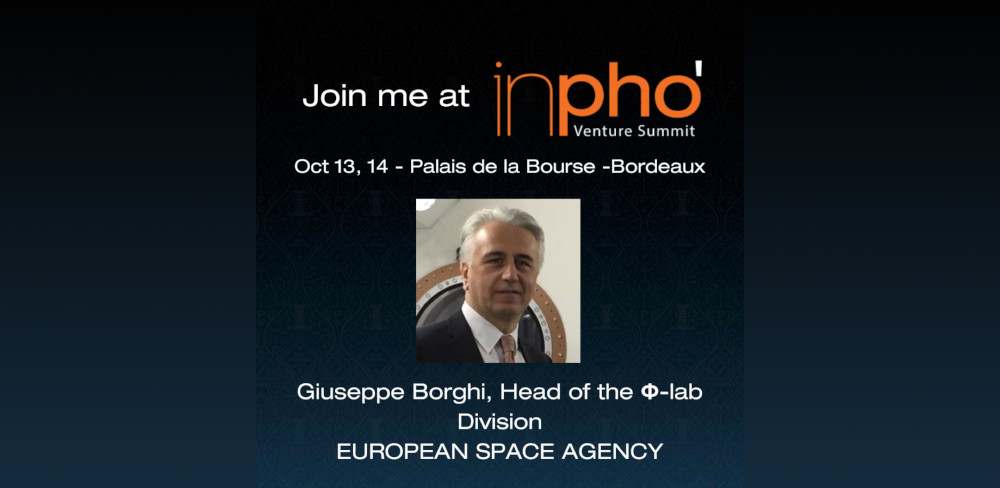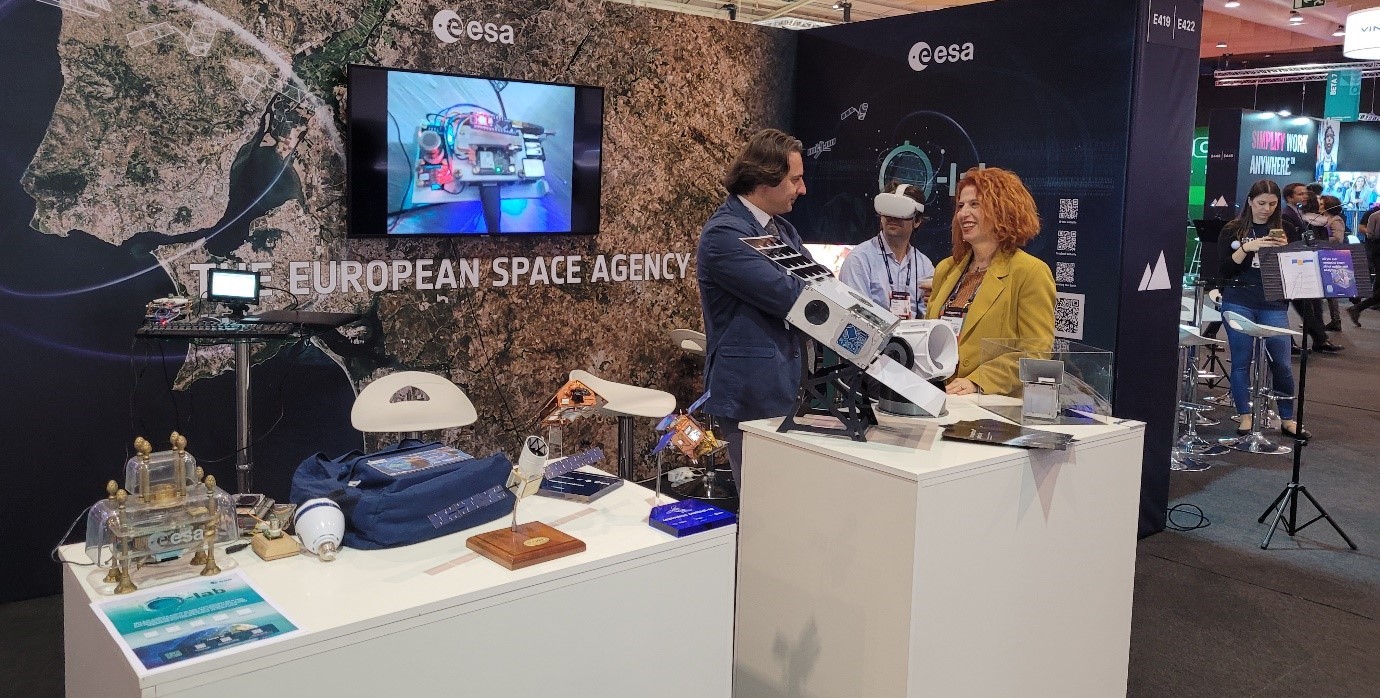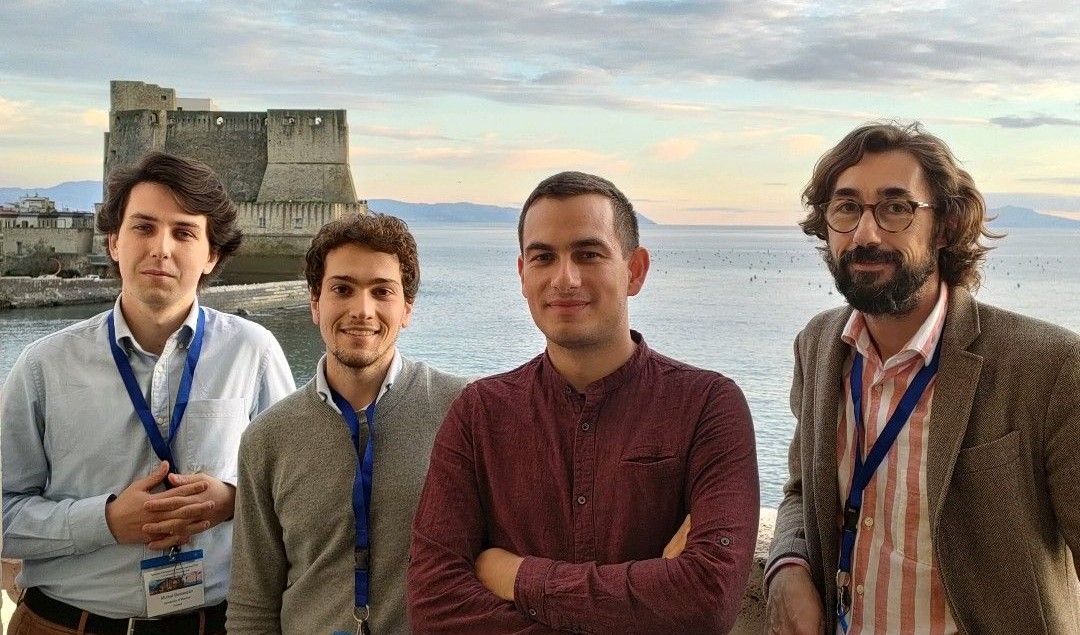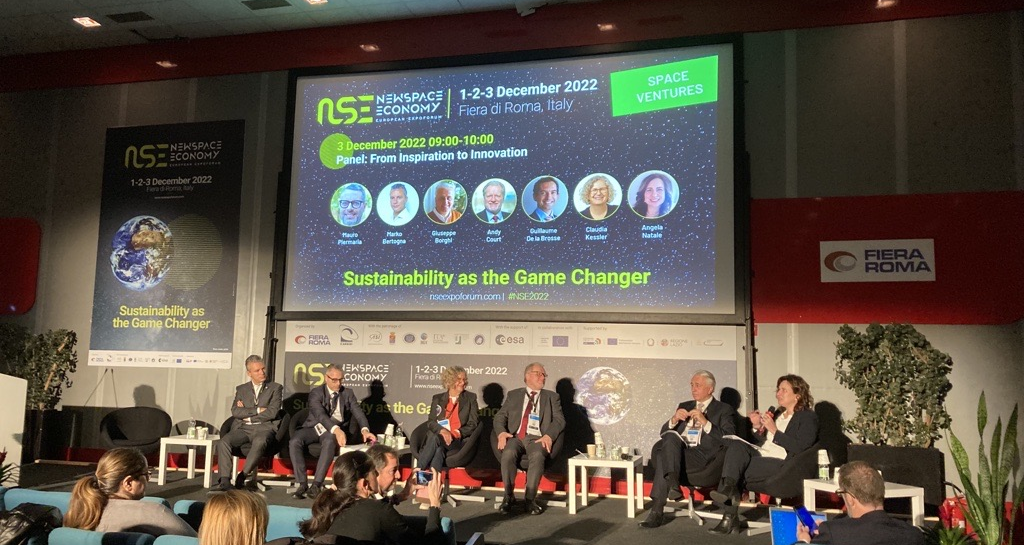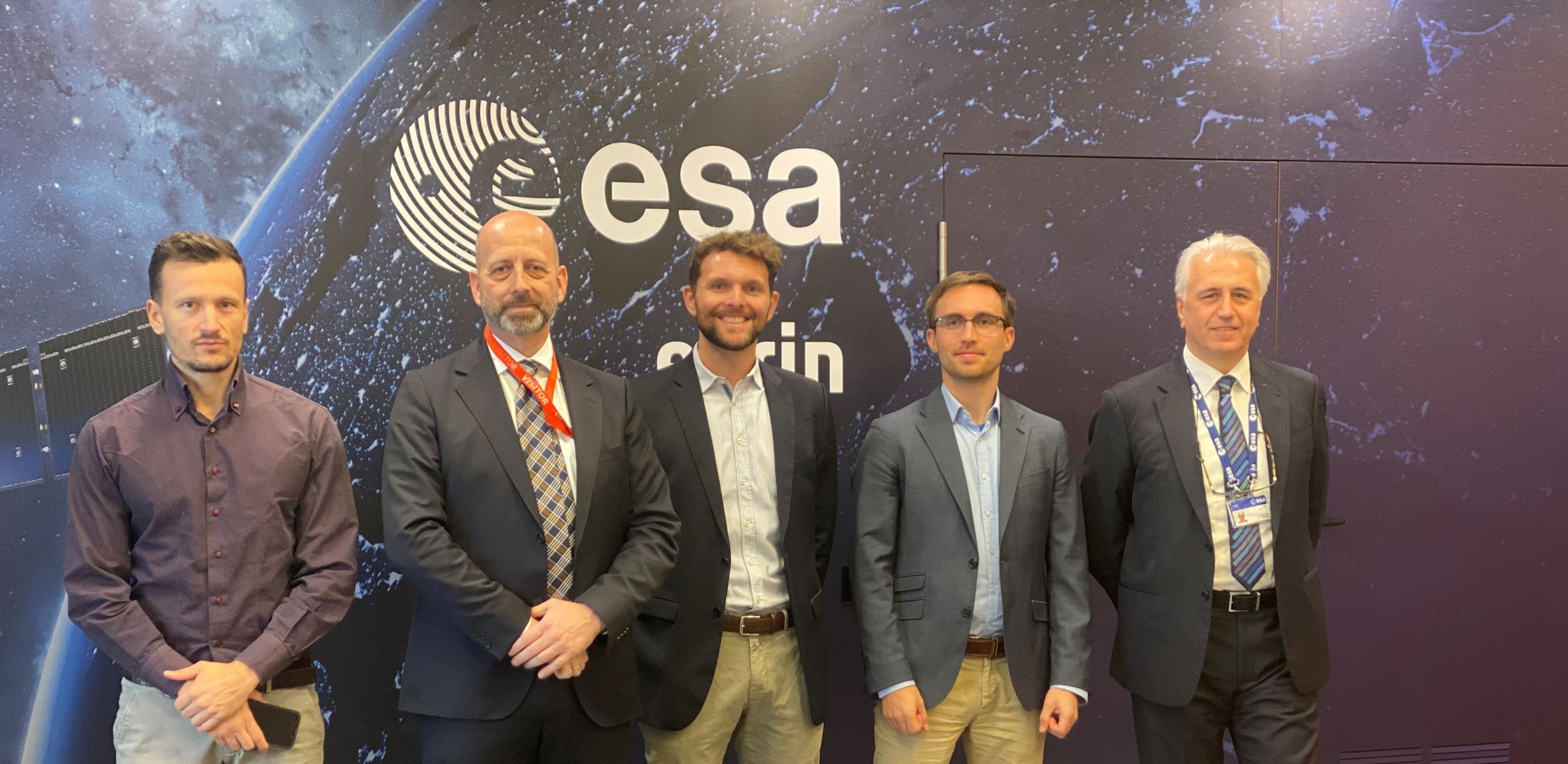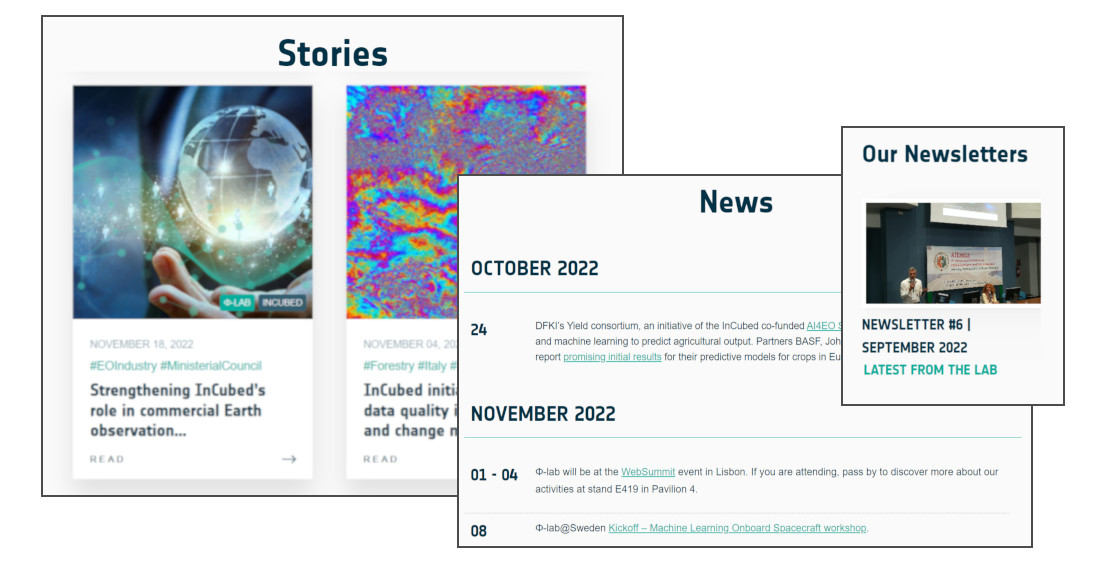|
If you are having trouble viewing this email, please open the web view |
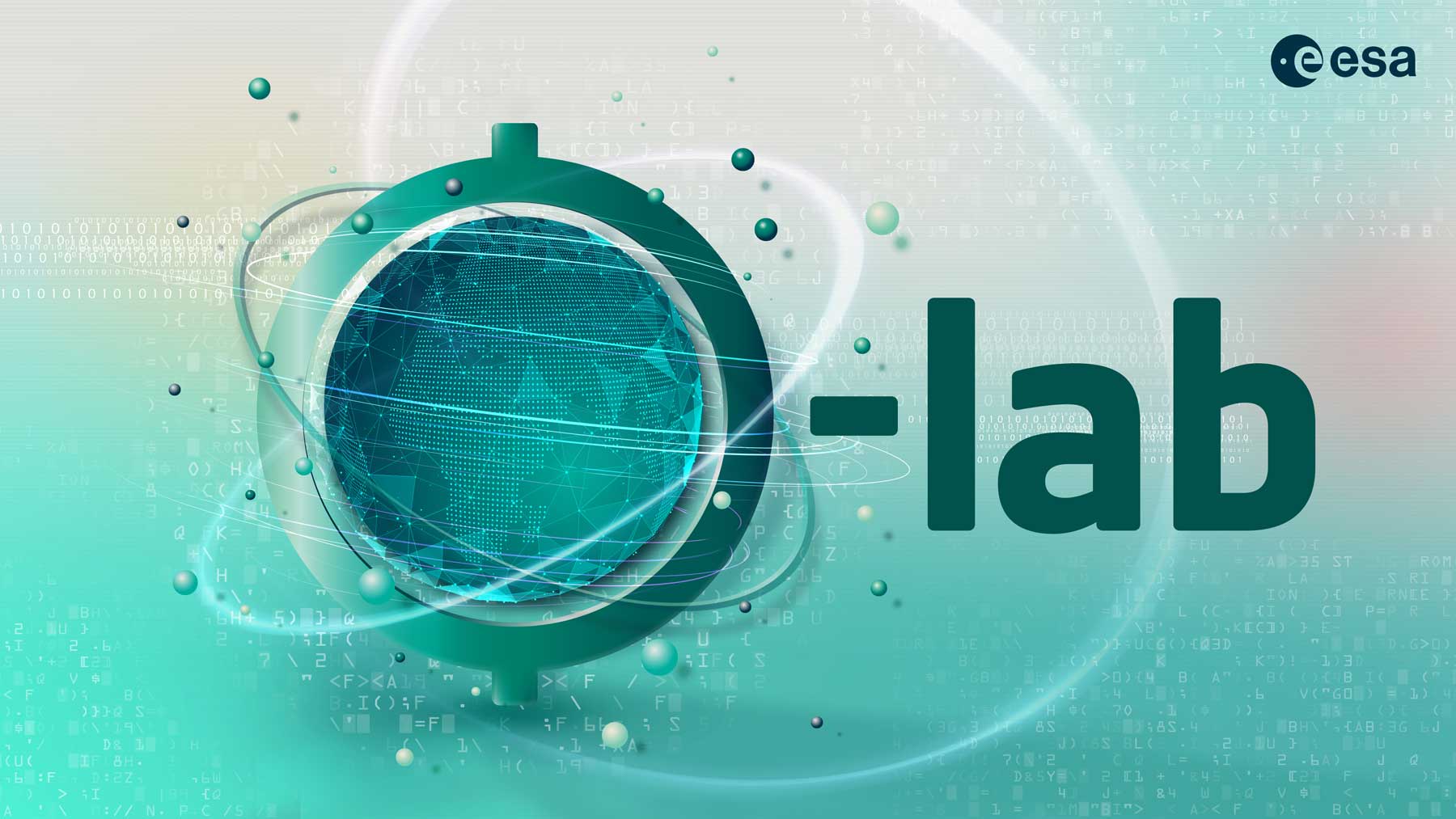 |
Newsletter #7 | December 2022
The last quarter has been another busy time for us, and as you’ll see from our Latest from the Lab section, many of the Φ-labbers have been deeply involved in events and conferences. One of the principal annual gatherings on machine learning for Earth observation and meteorological applications is the ECMWF-ESA Workshop, and this year’s edition is the focus piece of this newsletter. You’ll find details on Φ-lab’s participation, plus links to the presented materials and videos.
The most significant recent event for the whole of ESA though was the 2022 ESA Council at Ministerial Level (CM22). Member States gave a ringing endorsement of the Agency’s work, with an exceptional 17% subscription increase compared with CM19, giving rise to a total of €17 billion of which 16% is destined for the Earth Observation Programme (EOP) for continuing and developing its activities. This represents a successful CM22 for EOP in its efforts to both face the global challenges of 2023 to 2026 and beyond and ensure European strategic autonomy. As an optional programme, InCubed is heavily dependent on the outcome of CM22, and we’re extremely happy to report that the proposals for expanding its remit were met with an increased budget amounting to €176 million overall programme size, along with the membership of two new countries (giving a total of 21 participating states). We’ll bring you more details in the new year on what the results of CM22 mean for InCubed.
Our final newsletter of the year also includes the usual review of news from both Φ-lab and the wider EO community, plus a quick look at our revamped News and Events page. As 2022 draws to a close, Φ-lab wishes all our readers a merry Christmas and looks forward to another year of transformational innovation and inspiring challenges in 2023.
The Φ-lab team |
FOCUS ON THE ECMWF–ESA WORKSHOP 2022 |
|
The ECMWF–ESA Workshop on Machine Learning for Earth Observation and Prediction took place in Reading in the UK from 14 to 17 November. This event, jointly organised by Φ-lab and ECMWF, is now a well-established annual forum for discussing the state of the art of Artificial Intelligence (AI) in Earth System Observation and Prediction (ESOP). Φ-lab’s Rochelle Schneider dos Santos was the principal organiser from the ESA side and in addition to giving a welcome speech, Rochelle co-chaired a keynote session that set the scene for the ensuing discussions.
Other Φ-lab researchers also made major contributions. Bertrand Le Saux co-chaired sessions on machine learning (ML), firstly for Earth observation and then for user-oriented Earth Science applications, and in addition gave a talk on bringing the power of quantum machine learning to Earth observation. Alessandro Sebastianelli presented Φ-lab’s breakthrough research on an ML approach to forecasting dengue fever outbreaks, recognised by UNESCO (IRCAI) as one of the Global Top 100 AI projects solving problems related to the United Nations Sustainable Development Goals (SDGs).
The final day of the event was devoted to working groups, addressing the above themes and also hybrid data assimilation, model emulation and model discovery. Again, Φ-lab had a fundamental role, with Rochelle, Bertrand and Alessandro all chairing or participating in the various groups. The gathering was rounded off with a plenary session in the afternoon, which brought together the conclusions from the morning’s sessions.
All presentations and recordings from the four days are available here. |
LATEST FROM THE LAB |
|
|
|
|
|
FROM OUR WEBSITE
RECENT ARTICLES |
|
|
UPCOMING EVENTS |
|
RECRUITMENT |
WE'RE HIRING!Φ-lab is always looking for new recruits. If you are interested in pushing the boundaries in leading-edge AI4EO research, please get in touch. |
A LOOK AT THE PRESS |
|
Φ-lab | Contact Us | Privacy Policy | Unsubscribe Copyright © 2022 European Space Agency |
